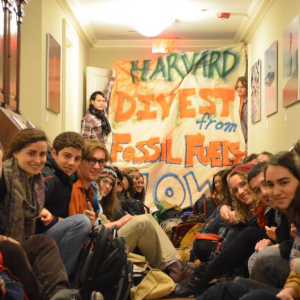“To be, or not to be? That is the question.”
With those words Hamlet pondered suicide. That’s a question we should ask as we ponder shrill calls on various college campuses for divestment from fossil fuels – as took place this past weekend as part of Global Divestment Day. For with the end of fossil fuel use comes the eventual death of a significant portion of the human race.
Yes, I just said that. And it’s true.
1.3 billion people live without electricity across the world, 2.6 billion lack clean cooking facilities. 4 million a year die from respiratory and other related illnesses from dirty cooking fires—mostly women and children.
1.8 million children die each year from illnesses related to drinking dirty water.
10.6 million children died in 2003 before they turned five years old.
And of course there are the many people—children and adults who die because they don’t have access to medical procedures we in the West take for granted.
It is impossible to run medical machinery (ventilators, x-rays, CAT scans, surgery equipment etc.) without electricity. Babies born with relatively fixable problems in the United States have zero chance of living in many places across the globe where there is no electricity.
Most of these people live in sub-Saharan Africa or rural Asia, but they aren’t the only ones hurt by anti-fossil fuel policies.
Energy poverty is alive and well in Western countries too.
73,300 people died cold-related in the last three years in the United Kingdom alone. On average, that’s 206 deaths a day, seven deaths per minute. Estimates of how many of those were due to “energy poverty,” driven by Britain’s break-neck push to turn from fossil fuels to wind and solar, range around 25 percent. 3.5 million people in the U.K. fear they won’t be able to heat their homes this winter as fuel prices continue their steady upward climb.
In Germany, 300,000 households have their electricity turned off each year. In 2008, 5.5 million people lived in energy poverty (spent more than ten percent of their monthly income on residential electricity). By 2011, that number had risen to 6.9 million people.
These are just two examples of stories repeated in every Western country that is raising energy prices by supporting wind and solar energy, and those numbers rise exponentially the farther east you go.
What do you think will happen if we intentionally destroy our sources of reliable, affordable energy?
The numbers of dead will rise rapidly. The poor, the weak, the elderly and the very young will die first.
And yet, with all of these people hurting and dying from a lack of energy, we are still having a conversation about fossil fuel divestment on college campuses.
Why?
Because the world is going to be destroyed by anthropogenic global warming/climate change/climate disruption!
No it’s not. The earth is fine, and the apocalypse is not going to happen—or, at least it won’t happen because of global warming, as studies here, here, here, here, here, here, and here demonstrate.
The sole reason for fears of dangerous manmade global warming was computer climate models—and real-world temperature observations invalidate them. Carbon dioxide, a byproduct of fossil fuel use that is supposed to drive global warming, turns out to warm the world only a small fraction of the amount the models assume.
Meanwhile, the energy we derive from fossil fuels lifts and keeps whole societies out of poverty, and the CO2 added to the atmosphere makes nearly all plants grow better, making food more abundant for all living things, and more affordable for the world’s poor.
Some anti-fossil fuel activists have actually come out against divestment, arguing that as stakeholders they have a seat at the table and can more successfully influence energy companies towards renewables (costly, ineffective energy sources).
These two opinions (divest or influence towards “green” energy), both anti-fossil fuel, are the opinions overwhelmingly reported in the media.
But they are far from the only voices speaking on this topic, and they are far from experts on energy.
One former student (one of the movement’s original supporters) even claimed that students are typically outsiders, and “divestment gets us in the board room, which is really exciting.”
Great, now we condemn the poor to death for a seat at the table?
Do they have a clue about the ramifications of their anti-energy diatribes? For that’s what it is, anti-energy. No other energy source can replace fossil fuels as the world’s leading energy source. Nuclear power is a fantastic option for electricity production, but it is also currently opposed by many environmentalists, and has received very little funding in recent years.
It’s time to flip the fossil fuel divestment debate on its head. I propose a third alternative. First, get on your knees and thank God you live in a country that has access to abundant and affordable energy—fossil fuels. Then, get off your knees and get on the Web (powered almost entirely by fossil-fuel energy) and join hundreds of others, including world-class climate scientists and other scholars, in endorsing “Protect the Poor: Ten Reasons to Oppose Harmful Climate Change Policies.” Finally get out of your comfort zone and protest against divestment, because without fossil fuels you won’t have the time, energy, or health to sit there “in the boardroom” and argue about it—if you’re alive at all.

